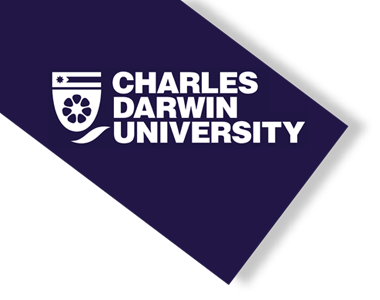Bachelor of Laws (Graduate)
Charles Darwin University
About
This graduate course enables those who hold a degree level qualification (other than law) to complete a law degree in three years instead of four.
The main aim is to provide legal education for the practice of law.
In that context, the course aims to provide knowledge of the legal system and legal principles, and to cultivate a capacity for legal research, analysis and communication.
The course also deals with theoretical perspectives on the law and encourages an appreciation of legal issues of special significance to the Northern Territory, including Aboriginal legal issues and southeast Asian law.
This course can also be studied in external mode.
External students receive on-line access to audiotapes of all lectures, as well as on-line tutorial assistance, enabling them to complete the course anywhere in the world.
Graduates of law are not restricted to a career as a solicitor, barrister, prosecutor or judge, if that is not their ambition.
A law degree opens up career options in in-house counsel of private and public institutions, teaching, industrial relations, military, police services, politics, human rights, customs, immigration or any public or private sector employment where an in-depth understanding of the law would be an advantage.
Structure
Core(15 units) - 150
Compulsory Core units totalling 150 credit points as detailed below.
(no longer avail)
(no longer avail)
(LWZ100A and LWZ100B replaced by LWZ111 from 2015 and LWZ115 from 2016)
LWZ114
LWZ116
LWZ118
(no longer avail)
(no longer avail)
(LWZ202 and LWZ203 replaced by
LWZ204
Constitutional Law plus 1 x Specialist Elective from 2015)
LWZ210
LWZ211
LWZ223
(no longer avail)
(LWZ202 and LWZ312 replaced by
LWZ304
Administrative Law from 2015)
LWZ315
LWZ316
LWZ317
LWZ320
Specialist Electives(9 units) - 90
Specialist Elective units totalling 90 credit points from the following: Students must complete either LWS221 (replaced by LWA207 from 2019) or LWS320. Students are not precluded from completing both units. LWS221 Dispute Resolution (replaced by LWA207 from 2019) or LWS221P Dispute Resolution (Clinical Practice)(LWS2219 not offered in 2014) (no longer avail from 2016) LWS320 Practical Advocacy (no longer avail from 2016) Note: Not all Specialist Elective units are offered every year. Specialist Electives offered each year LWA112 Environmental and Planning Law (next offered 2020) LWA210 Contemporary Issues 1 LWA211 Contemporary Issues 2 (no longer avail from 2016) LWA213 Family Law or LWA213P Family Law (Clinical Practice) CMT301 Taxation (no longer avail) LWC304 Research Paper (replaced by LWA317 from 2016) Specialist Electives offered in alternate years LWA214 Employment Law (no longer avail from 2016) LWA215# Advanced Criminal Law (no longer avail from 2016) LWA216# Advanced Torts (no longer avail from 2016) LWA218# Advanced Contracts (no longer avail from 2016) LWA223# Advanced Property Law (no longer avail from 2016) LWB201 Indigenous Peoples and the Legal System (replaced by LWA111 from 2016) (next offered 2020) LWB205 Legal History and Jurisprudence (replaced by LWA110 from 2016) (offered each year) LWB206 Human Rights Law (replaced by LWA221 from 2016) (next offered 2020) LWA316 Intellectual Property Law (next offered 2020) LWA318 International Law (replaced by LWA321 2016) (next offered 2020) LWA325 Succession LWA328 Competition and Consumer Law (previously Trade Practices) LWA329 Conveyancing Law (new title from 2016) (next offered 2020) LWA330 Cyber Law (no longer avail from 2016) LWB313 Indigenous Peoples and Property Law (no longer avail from 2016)
- 240
Total Credit Points
Entry requirements
Successful completion of a recognised bachelors degree or equivalent.
Institution
